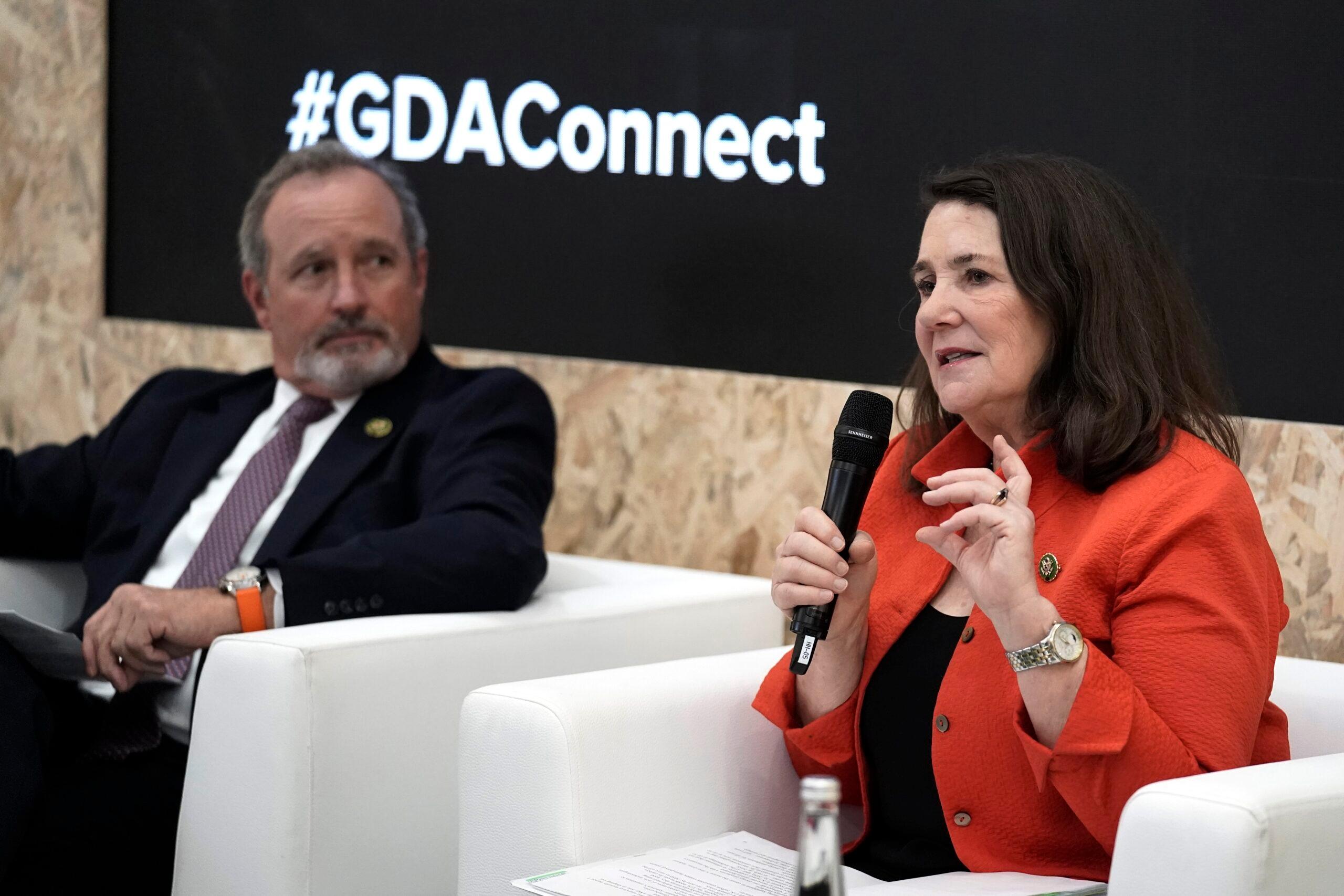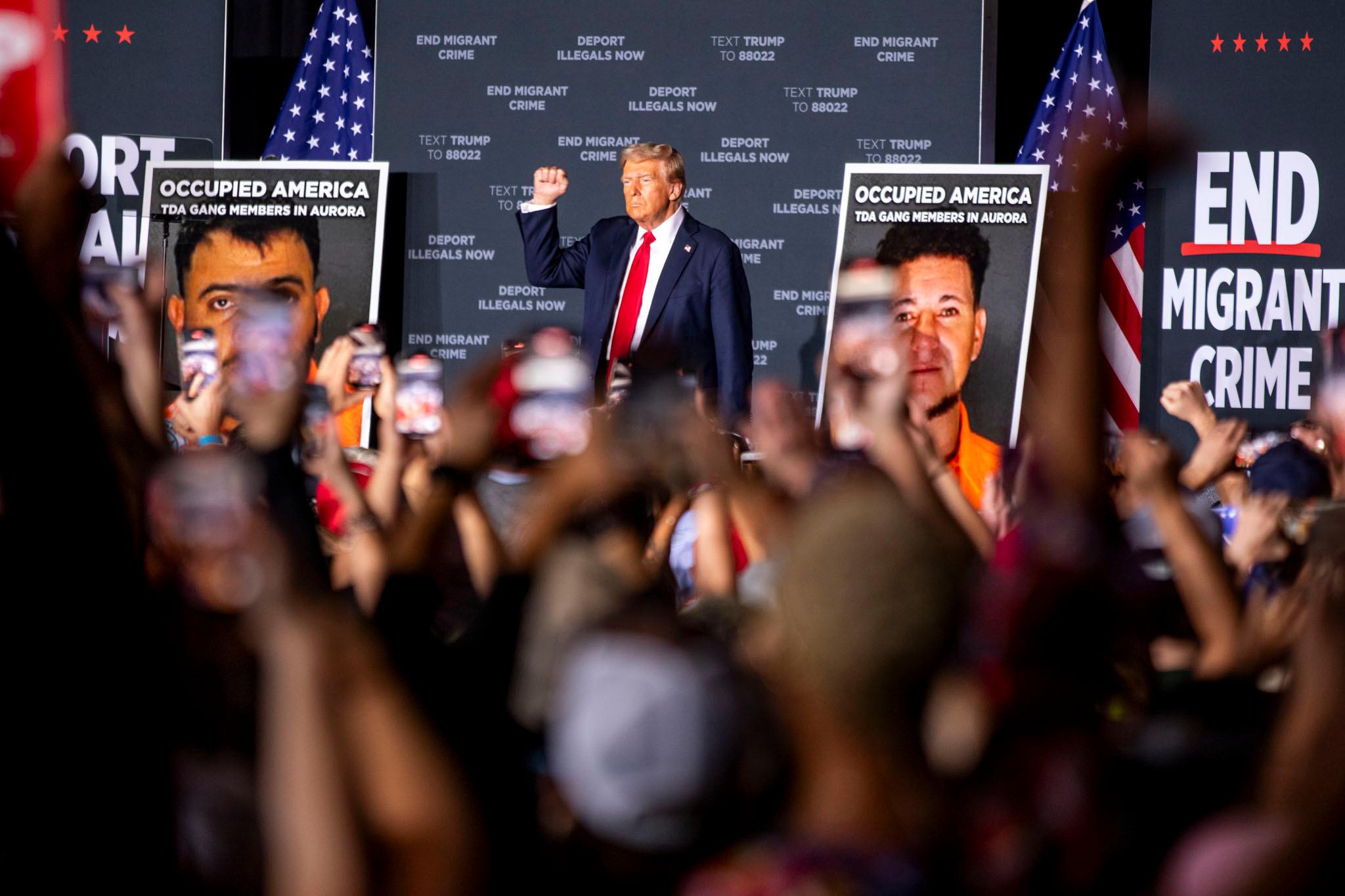
Rep. Diana DeGette was hustling through a pavilion area at COP28, the United Nations climate change conference, in Dubai this past weekend, when something caught her eye. A little shed with a sign that said “Colorado State University.”
“I ran over, I said, ‘Hi you guys. I'm from Denver,’” she recalled. The staffers there knew exactly who the dean of Colorado’s congressional delegation was, and spent some time catching her up about CSU’s climate initiative. “They actually had a booth at COP, one of the few universities to have a booth at COP. I was very proud.”
That small-world moment full of home state pride aside, DeGette spent a whirlwind weekend at the conference as part of a bipartisan House delegation, 11 Republicans and six Democrats, all from the House Energy and Commerce Committee.
“I thought it was really important that Congress tell the world that the U.S. is still there on climate,” DeGette told CPR News in her Capitol Hill office a day after returning. “The bipartisan message was that the U.S. really is committed to being part of the climate solution.”
This was DeGette’s second time attending the conference. The last one was COP15 in Copenhagen. She said a lot has changed since then.
“I remember the days when we would have hearings in the Energy and Commerce committee where all the Republicans would sit there and be climate deniers. So, the fact that 11 of them came to Dubai to actually talk about climate solutions — even though I don't always agree with them — I thought that was a really good start.”
Trips like this are also a good start to get to know colleagues across the aisle that members don’t regularly get to work with. DeGette said some of her most productive partnerships on legislation have been with Republicans she's traveled with and “really gotten to know.”
For the most part, the bipartisan group tried to keep focused on issues where there is agreement across the aisle, such as energy permitting reform and nuclear power. DeGette was on a panel entitled “U.S. Leadership in Nuclear Energy and Global Security” with GOP Reps. Jeff Duncan of South Carolina and Brandon Williams of New York.
“What people have realized is that nuclear energy is going to have to be a part of the solution if we hope to get to zero percent emissions by 2050,” DeGette explained. “And so Democrats and Republicans alike are talking about how can we improve — streamline — but also make sure that we have safety in the nuclear space.”
She’s hopeful that her bill with Duncan, the Atomic Energy Advancement Act, which enables efficient and timely licensing, regulation and deployment of nuclear power, will make it to the House floor in the coming months.
DeGette also came away from COP28 with the takeaway that Congress needs to continue trying to pass legislation that can set up a framework “to help everybody realize how we can be on the same page” when it comes to the issue of climate change.
But that might be a hard lift in a Congress where partisan rifts have become commonplace. The different priorities were evident in Dubai. Republicans talked a lot about clean fossil fuels and leadership on domestic emissions reductions, while DeGette and other Democrats also touted climate actions found in the Inflation Reduction Act and other legislation passed last Congress.
“Our cohorts around the world saw that the IRA was the biggest investment in clean energy that we've ever made in this country,” said DeGette. “I hope (Republicans) start to see its importance.”
Aside from meeting with counterparts from other countries, from Germany and Estonia to South Korea and Australia, the congressional delegation also met up with the Biden Administration’s Climate Envoy, John Kerry.
DeGette said he provided some encouraging perspective in the face of all the disheartening climate news.
“[Kerry] reminded us that even though we are not where we need to be in the climate goals, we have bent the curve so much from where we would have been if we had not had this big international conference,” she said.
And ultimately, DeGette said that’s also why it’s important to send congressional groups to meetings like this, especially when much of the news is on the dysfunction of Congress, “to say, ‘look we are still here and we are still committed to tackling the climate crisis.’”









